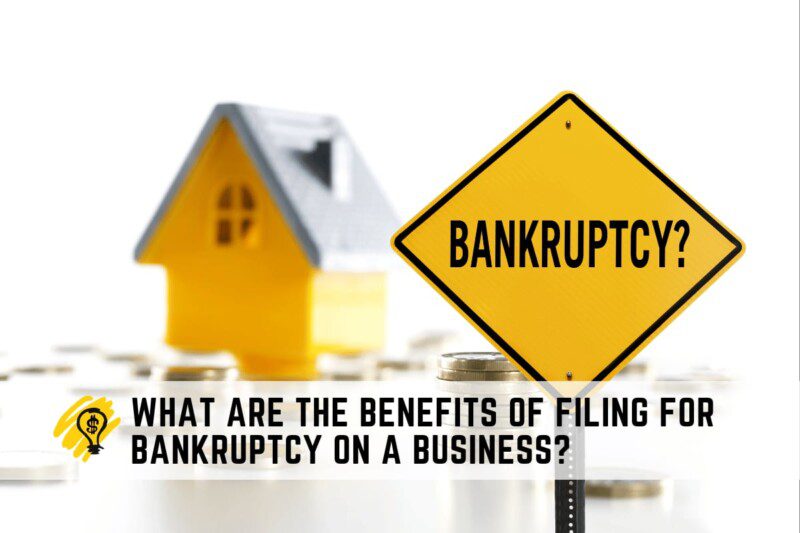Filing for bankruptcy is your best alternative if you can’t get out of debt. In today’s society, declaring bankruptcy is not nearly as socially unacceptable as it was in the past, if it ever was. Over 750,000 Americans were drowning in consumer debt and filed for bankruptcy each year, seeking and receiving financial relief.
Even so, if you are having trouble keeping up with your consumer debt and are considering bankruptcy, you should immediately contact a skilled, qualified, compassionate Nevada bankruptcy attorney for case evaluation and support.
Although bankruptcy is a severe problem, several benefits are associated with it that allow individual debtors to start over and achieve independence from their financial obligations.
Different Forms of Bankruptcy
When a company’s financial woes seem impossible, it may file for one of several bankruptcy protections available from the courts.
There are six distinct categories of bankruptcy in the United States, designated by the corresponding chapters of the Bankruptcy Code: Chapters 7, 9, 11, 12, 13, and 15.
The most popular types are Chapter 7, which dissolves a company and absolves its owners of duties and debts they cannot pay, and Chapter 11, which assists a company in temporarily suspending some obligations. At the same time, it formulates a reorganization plan.
Also, after filing for Chapter 7 bankruptcy, you can start a new company without worrying about any debts or expenses associated with the old one.
On the other hand, You will be able to save your company profitably and emerge from bankruptcy with the assistance of Chapter 11, which will help you take action to stop your downhill slide.
Debt Payment Suspension
By filing for Chapter 11 bankruptcy, also known as Chapter 11 protection, a company can delay payments on its debts for a set period.
As part of the bankruptcy process, a committee of creditors is formed to review the company’s restructuring plan and to present evidence to the bankruptcy court.
Moreover, it is common practice to propose to pay back only a tiny portion of what is due to creditors as part of a reorganization plan filed under Chapter 11.
Creditors may give in to this request to ensure the company’s survival; if successful, this could lead to millions in revenue. The judge will have the last say on whether or not the restructuring plan for the company is approved, but the creditors’ committee will vote on it first.
Renegotiation of Contracts
In the context of a Chapter 11 reorganization, a company with contracts, including those with labor unions, is permitted to terminate existing contracts to renegotiate more favorable terms.
Because it indicates that the company will continue to function, acquire supplies and services, and perhaps offer jobs for years to come, many vendors, suppliers, and unions are eager to lower your debt or renegotiate contracts.
In addition, if a labor organization is involved, union management will present the proposed new contract to the union’s members for a vote and recommend whether or not the members should accept the deal.
More time for Restructuring
For some companies, a reprieve from debt payments and renegotiated contracts is all it takes to get back on their feet.
Businesses that otherwise wouldn’t stay afloat with these obligations could turn the company around by suspending debt payments and negotiating less expensive contracts.
It allows the firm to turn the company around while it pursues new cost-containment measures, sales efforts, or asset sales that may take months to accomplish.
In the event of a corporate closure, employees may be prepared to accept lower compensation or fewer benefits to avoid the uncertainty of the job market.
Bankruptcy provides a strategic advantage
The option to temporarily suspend debt-service obligations, pay only a portion of current debts, and terminate contracts can provide you an efficiency edge over competitors who are obligated to fulfill all of their commitments.
In contrast, CFO magazine polled business owners in 2006 and found that most of those surveyed believed filing for bankruptcy protection under Chapter 11 provided the covered business with an unfair competitive advantage.
Decreases Personal Risk
If a company operates at a loss for an extended time, liquidating it under the terms of Chapter 7 bankruptcy will terminate the company’s ongoing loss of cash, for which the owners or partners may be held personally accountable.
Even if you close your doors, you may still be responsible for the mortgage, rent, insurance, property taxes, security and maintenance charges, and other items that make up your carrying costs.
On the other hand, if you are personally accountable for any or all of the obligations the company owes, you risk having your savings and your house was taken away from you. By filing for Chapter 7 bankruptcy, a business can formally be shut down, payments can be suspended, and all obligations can be discharged once assets are liquidated to cover debts.





